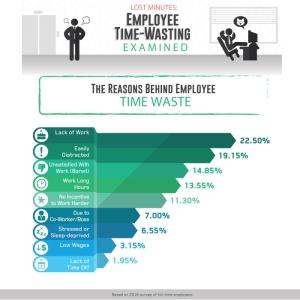Your accounting system is the key to understanding what's happening in your business. It's also vital to tax return preparation and other government compliance obligations. That's why getting things right is essential. Unfortunately, whether you use a cloud-based or desktop accounting system, mistakes can happen. Understanding what can go wrong and how it can impact your business is important. Even more important: Knowing how to correct accounting errors and avoid future ones.
What are the most common types of accounting errors & how do they occur?
The integrity of the information in your accounting system is only as good as the data you enter. This means including an item in the appropriate account, applying the correct description or code for the item, and entering the correct amount.
Unfortunately, accounting errors can result from simple mistakes or misunderstanding accounting rules. Here are some types of mistakes to look for when reviewing accounting reports.
Data entry errors
Data entry errors are mistakes that are made where and how items are entered (or not) in your accounting system. Some common data entry blunders include:
- Entering items in the wrong account.
- Transposing numbers.
- Leaving out or adding a digit or a decimal place.
- Omitting or duplicating an entry.
- Treating expenses as income or vice versa.
Error of omission
Error of omission is simply a failure to record an item. It's not intentional; it's just overlooked. For example, an invoice is paid but you fail to note receipt. Or you purchase a tablet but don't record this in your accounting system. This can easily happen if you misplace documentation—a receipt or invoice—so that it never gets recorded.
Error of commission
Error of commission is the mishandling of an item by putting it in the wrong place. The amount you enter is correct, and you even put it in the right general account, but you then use the incorrect sub-account. For example, you receive payment on an invoice but note the receipt against a different customer's invoice. Your total payments come out right for accounting purposes, but what's shown for a particular customer is wrong.
Error of transposition
Error of transposition is the incorrect recording of the amount of an item by reversing numbers. This can cause overstating or understanding the amount of an item, which is the result of transposing a number. For example, instead of entering an expense as $946, you erroneously enter it as $496. This produces $450. An error like this can be costly if it is a deductible amount that isn't claimed because of the entry error.
Compensating error
Compensating error is really two errors that occur at the same time; one offsets the other. Because the net effect is zero, it is difficult to detect. For example, you erroneously overstate income by $1,000, but you also overstate an expense by a like amount so it all evens out even though both entries are wrong.
Error of duplication
Error of duplication occurs when you enter the same item of income or expense more than once. For example, such an error can happen when more than one person has access to the accounting system and each makes the same entry.
Error of principle
Error of principle is recording an item that does not comport with Generally Accepted Accounting Principles (GAAP). Usually, this happens when an entry is made in the wrong account. The amount is correct but is simply entered in the wrong place. An error of principle is a serious procedural mistake because it can have big consequences. The most common example of an error of principle is recording an owner's personal expense as a business expense.
Error of entry reversal
Error of entry reversal is the result of treating an expense as an item of income or vice versa. Instead of recording a $250 invoice in your accounts receivable, you erroneously put it in accounts payable (i.e., you record it as an expense).
How can accounting errors affect your business?
Accounting errors may be minor or substantial. Either way, they can have serious consequences:
- Incorrect income reporting. Incorrect expense reporting can distort a company's computed operating profit margins or could result in over-reporting of income.
- Incorrect cash flow information. If items are not reported correctly, it can overstate or understand the amount of cash on hand to pay bills.
- Incorrect expense reporting. Misclassification or failure to include business expenses may result in the failure to report a deductible expense. It can result in overpaying taxes.
- Increased labor costs. Correcting classification mistakes on the back end is time-consuming for employees already busy with year-end reporting.
- Late payment fees. When misclassification errors are discovered later in the accounting cycle, invoices may be past due and result in additional fees and interest.
- Improper matching of income and expenses. Misclassified expenses may cause incorrect reporting for companies using accrual accounting. Expenses should be properly matched with the income they generate. If expenses are classified in the wrong month or year, this will not happen as it should.
- Detecting fraud. It's unfortunate that employee fraud, including embezzlement, can occur at any business. When items don't match up, it can indicate that something is wrong and more investigation is required.
How can you prevent accounting errors?
Being careful with your financial information is the first line of defense in ensuring that items are properly classified and entered correctly on your books. Here are some steps you can take to facilitate sound accounting entries.
1. Train staff on data entry accuracy
Make sure employees who are entering expenses into your accounting system understand your accounts and descriptions. Take the time to fully explain your system. Some software may offer employee training, so take advantage of this option.
Set company policy on documentation procedures so entries can be made properly and accurately. For example, record reimbursements to employees when made after they've submitted expense reports so you know the numbers are correct.
And make sure there's someone knowledgeable in accounting entries who can answer questions when they arise.
2. Don't overload your employees
Employees who are overloaded with work can more easily make simple entry errors than if they were given adequate time to handle this activity. Yet it's essential that your accounting stays current and that you don't fall behind. Consider ways in which to simplify and improve data entry and avoid errors, such as the use of expense report software to easily import data into your accounting system.
3. Utilize the newest accounting software
Use the latest version of your accounting system. Software and cloud versions are continually being improved to simplify the entire accounting process. Cloud-based systems update automatically, desktop software requires a purchase every several years to stay up to date.
4. Implement internal controls
Put practices in place that can help to detect and correct accounting errors. For example, conduct bank reconciliations every month so you can catch a problem and the error doesn't linger on your books. The same goes for credit card statements. Review them monthly to ensure charges have been entered correctly in your accounting system.
5. Check for differences between the budget and actual expenses
Use your accounting system to keep you on the right financial track. Your budget may show a certain amount of money is to be spent on a particular item or activity, but the entry doesn't match up. Comparing your actual expenses to the amount you budgeted can help you discover a misclassification (or at least an explanation for the differences).
6. Conduct a periodic professional review of accounts
You may want your accountant to periodically review your accounts to make sure that they appropriately reflect the expenses you incur and comply with GAAP. Your accounting software may have a feature that facilitates a client data review by your accountant.
7. Adopt best accounting practices and standards
Don't let your staff procrastinate. Set deadlines for data entry and reconciliation so that errors are found quickly and can easily be corrected.
Understand accounting standards, so they are incorporated into your accounting system. Private companies based in the U.S. use GAAP for accounting. This dictates when and how income and expenses are reported. Your accounting system must reflect these standards.
Mitigating accounting errors
Some accounting errors can be fixed by simply making or changing an entry. For example, a company's payment to an independent contractor for $500 was not entered in the books. This mistake can be fixed by making the appropriate entry. Some corrections in expense classification may trigger a change in accounting method for tax purposes, requiring you to file a request for a change in accounting method. Other errors may have ripple effects (e.g., you may need to restate previous financial statements).
If you experience misclassification problems or want to avoid them entirely, it's always advisable to work with experts who can ensure that your accounting systems are working well and your numbers are correct.










